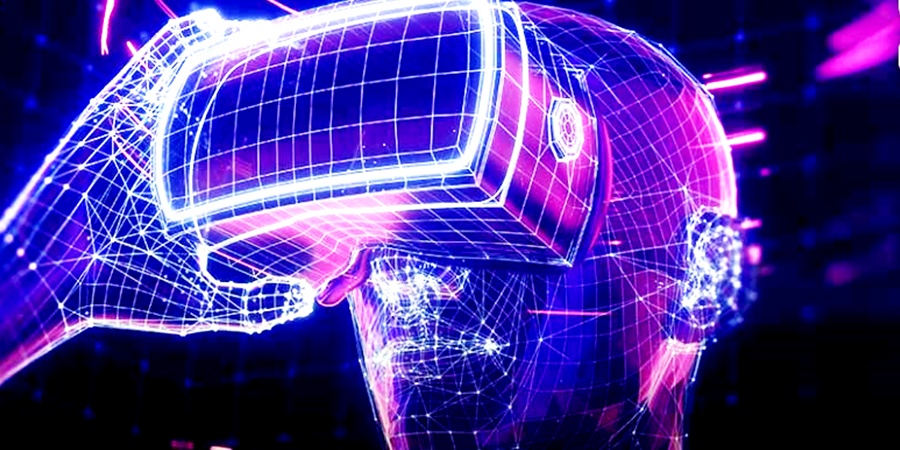Industry visionaries have been inspired by this latest technology trend, which is the metaverse. Not a day goes by without a mention of metaverse at our offices, in our households or from our news centers. The applications of emerging technologies such as AI and automation are being used in innovative ways to bring about this digital marketplace; one where there will be no language barriers as end-to-end human-powered AI video conferences and audio will allow global teams to communicate with ease. The merging of human intelligence with AI automation power is expected to create opportunities for new ventures that have yet to be tapped. A recent roundtable for the Dubai Chamber of Digital Economy explored, at length, the kinds of talent that Dubai-based companies should be targeting; the role of the private sector in strengthening the emirate’s value proposition to attract the brightest minds globally; and how businesses can capitalize on new consumer trends and opportunities emerging in the age of Web3 and the metaverse.
Some of the areas that metaverse will incorporate include digital currency, e-commerce, social media, entertainment, gaming and digital assets. Specific sectors, like recruitment companies, for instance, could benefit from innovative and disruptive artificial intelligence that can help recruiters tap the best talents before their competitors. For mobile operators, it could be leveraging AI to provide footfall and mobility analytics for businesses and governments, creating insights on how people move, their mode of transportation, places they visit, and so on.
Highs and Lows
Although the concept of the metaverse is in its nascent phase, it would not be incorrect to forecast its imminent future. Indeed, one company currently diminishing the confidence in this “unknown future” is Meta (formerly known as Facebook) — the harbinger of the virtual world, its Reality Labs unit losing a whopping $5.8 billion on AR and VR operations early this year. However, such examples cannot be construed as failed projects as of yet. Also read: Tech Giants Stagger Across Tough Economy, Place Long-Term Bets
On the other hand, 5G standards are evolving. China and some countries in the Middle East are already in a transition from the initial 5G phase of 5G standalone to a 5G advanced (5.5G) phase.
Huawei proposes four distinct capabilities for 5.5G — 10 Gbps downlink, 1 Gbps uplink, support for 100 billion connections and native intelligence. Moreover, it is urging industry players to set up standards frameworks as proposed by 3GPP, ETSI and ITU telecom organizations. Huawei believes that incubation projects of new use cases will lead to the advancement of a prosperous industry ecosystem that will speed up digital and intelligent transformation.
Similarly, world-leading equipment manufacturers Ericsson and Nokia are setting up 5G networks along with network providers in new markets in the MENA region and globally. 5G integration with technologies such as cloud and AI promises new services for both consumers and businesses. For instance, telcos can provide services with extended reality (XR), cloud gaming and enriched calling for individual consumers and provide enterprises with sector-specific digital transformation solutions that open new revenue streams other than connectivity. 5G network slicing is being tested for commercial use whereby a subscriber can access slicing services over a dedicated line for seamless video live streaming and gaming on their devices.
Back to the Future
It is estimated that by 2025, 85% of enterprises will have migrated to the cloud and will need high-quality and high-bandwidth networks.
Moreover, the latest KPMG UAE Tech Report 2022 notes that organizations in the UAE are ahead of their global counterparts in achieving digital transformation goals, including investing in IoT, Edge, 5G and intelligent automation. The report also states that a majority (93%) of UAE businesses plan to invest in the metaverse, enabled by widespread technology adoption and customer demand. According to the report, UAE tech leaders are realigning their plans to address the challenges of the talent gap and risk-averse corporate culture as well as cybersecurity with clear data strategies and investments in robust controls to meet the changing business models and evolving customer expectations.
Aspiring global tech leaders such as e& (formerly known as Etisalat Group) and EITC’s du have launched their metaverse strategies in line with the Dubai Metaverse strategy that aims to turn Dubai into a digital hub where emerging technologies will play a transformational role in driving businesses ahead in the future.
As the inevitable virtual world and its activities are set to grow, telcos also need to establish a framework that will address the aspects of capable talents, investment in new technology and strategic incubator projects to reap the benefits of this new world.
Importantly, since the network operators are the connectivity catalysts for the data flow of every transaction, the nature of financial contributions by companies who use their networks also warrants attention. Strategizing along the same lines, the European Union's executive body is reportedly launching a consultation in 2023 to discuss whether tech giants such as Google, Microsoft, Amazon, etc. should contribute to the cost of Europe's telecoms network. It has been argued that it should comply with the net neutrality policies whereby internet service providers (ISPs) cannot manipulate internet traffic on the basis of biased preference and that the concept of “fair share” should be applicable based on the volume of the internet traffic of each company. This seems to be a valid proposition and certainly one to keep our eye on.
Also read: The Next-Generation Conversational Chatbots – the Center of Telco CX Revolution











